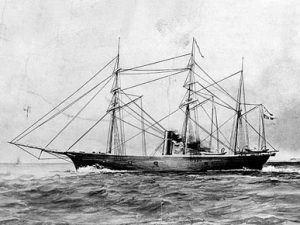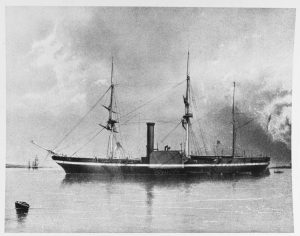The United States Civil War had far-reaching impacts in Brazil. The “peculiar institution” of slavery was a until then something the two countries had in common. It also provided Brazilian thinkers and planters with an added layer of legitimacy. But with slavery abolished in the United States, what did that mean for Brazil and Cuba as the last Western nations to keep the institution?
During the U.S. Civil War, Brazilians had conflicting feelings about whether they should support the Union or the Confederacy. Clearly, the Brazilian government wanted to maintain its friendly relations with the government in Washington, but at the same time many Brazilians identified with the cause of the Confederacy and its defense of slavery. Thus, tensions emerged around Brazil’s treatment of Union and Confederacy ships in its harbors.
Additionally, the Civil War highlighted how abolitionism was not a nationally restrained movement, but one that crossed national lines. Many slaves in Brazil, upon hearing of what was happening in the United States, created their own narratives and movements for their freedom. This reveals the great degree of agency of enslaved people and organization of abolitionist networks in Brazil, two elements that have often been overlooked in traditional historical accounts.
Readings
Isadora Mota, “Other Geographies of Struggle: Afro-Brazilians and the U.S. Civil War” Hispanic American Historical Review (2020) 100 (1): 35–62. | English
Rafael Marques, “The Civil War in the United States and the Crisis of Slavery in Brazil”, In Don H. Doyle, ed. American Civil Wars: The United States, Latin America, Europe and the Crisis of the 1860s. Chapel Hill: University of North Carolina Press, 2017. | English
Documents
Joaquim Nabuco, Excerpts from “O Abolicionismo” (1963), Concluding Chapter. | Português





